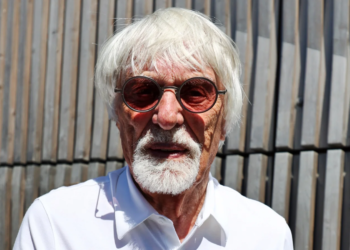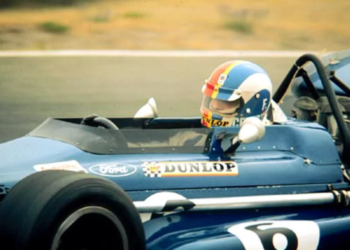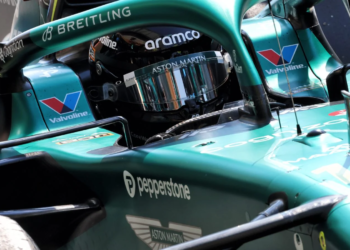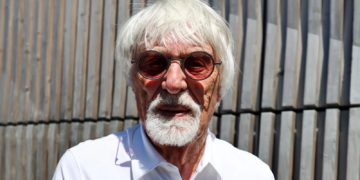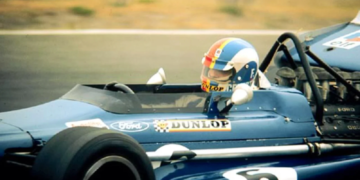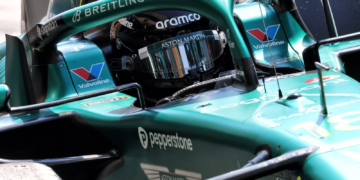Motorsport is often portrayed as a cold, mechanical science: engineers crunching data, drivers following strategy sheets and teams investing millions to shave off tenths of a second.
But at its heart, motor racing has always been about audacity. Some of the sport’s greatest legends are not the ones who had the best cars or the biggest budgets, but those who stared down impossible odds, made a gamble and came out victorious.
Just like the unpredictable spin of online slots, racing history is littered with stories of those who embraced risk when others played safe. Sometimes it ended in heartbreak, but other times it rewrote the record books.
James Hunt – The playboy who became Formula 1 World Champion
James Hunt (pictured above) was never meant to be the corporate-friendly face of Formula 1. He was scrappy, unpolished and more likely to be photographed with a cigarette and a pint than in the gym. When he entered the 1976 season, few believed he could seriously challenge the might of Ferrari and Niki Lauda.
But Hunt thrived on chaos. He gambled with daring overtakes, sometimes brushing wheels and dancing on the edge of disaster. The season culminated in one of the most dramatic finales in motorsport history.
Lauda, having miraculously returned after a near-fatal crash at the Nürburgring, withdrew from a rain-soaked Japanese Grand Prix. Hunt needed to finish third to take the championship. He went all-in, clawing through the field with a puncture, barely securing enough points to be crowned FIA Formula 1 World Champion by a single point.
It was a victory defined by risk, resilience and timing. The perfect metaphor for fortune favouring the bold.
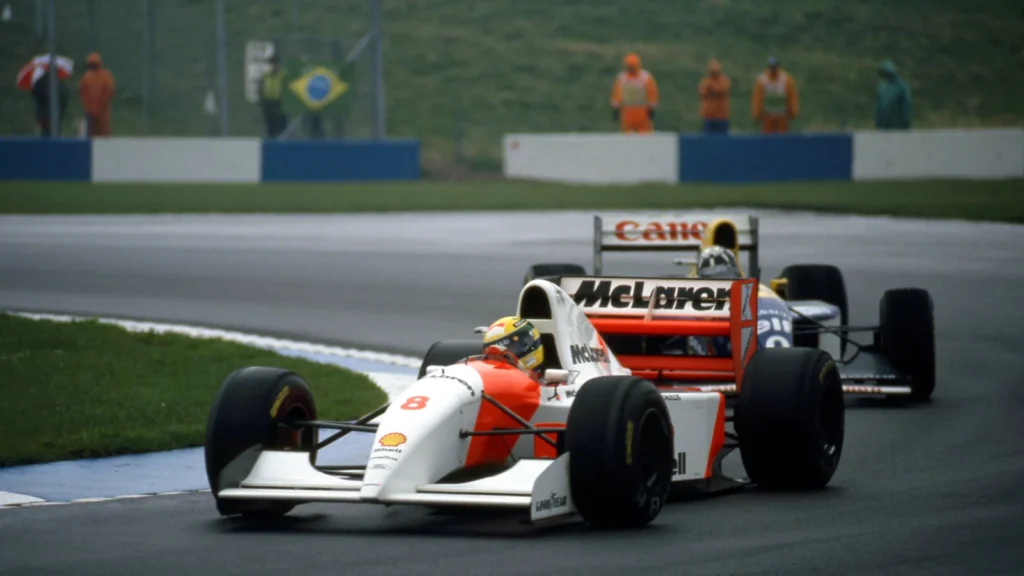
Ayrton Senna at Donnington – Rain masterclass of ’93
Few drivers embodied risk like Ayrton Senna. While his three championships already cemented his place in history, one particular race in 1993 remains the stuff of legend.
The European Grand Prix at Donnington was a wet and miserable affair, the kind of conditions that terrify even seasoned pros. On the opening lap, Senna started fourth but unleashed an assault so breathtaking that it is still considered the greatest opening lap in Formula 1 history.
He passed four cars in less than a minute, carving through Michael Schumacher, Damon Hill, Alain Prost and Karl Wendlinger with a mixture of raw instinct and razor-thin margins.
That day, Senna didn’t just win a race. He showcased how intuition and daring can make miracles. It was calculated madness, a reminder that in motorsport, sometimes instinct can be worth more than strategy.
Brawn GP – The miracle of 2009
In modern motorsport, where billions back the top teams, the story of Brawn GP feels almost mythical. When Honda suddenly withdrew from Formula 1 in late 2008, the team’s staff faced unemployment. Enter Ross Brawn, who led a management buyout, rebranded the team and showed up at the first race with a car few took seriously.
Then came the shock. The BGP 001 was a rocket, aided by a controversial “double diffuser” that rival teams had overlooked. Suddenly, this supposed underfunded outfit was leading the championship.
Against all expectations, and despite limited resources, Jenson Button won six of the first seven races, riding the wave of risk that Ross Brawn had staked everything on. By the season’s end, Brawn GP had claimed both the Drivers’ and Constructors’ Championships.
It was a Cinderella story for modern racing. proof that even in an era of corporate giants, daring innovation can still tilt the odds.
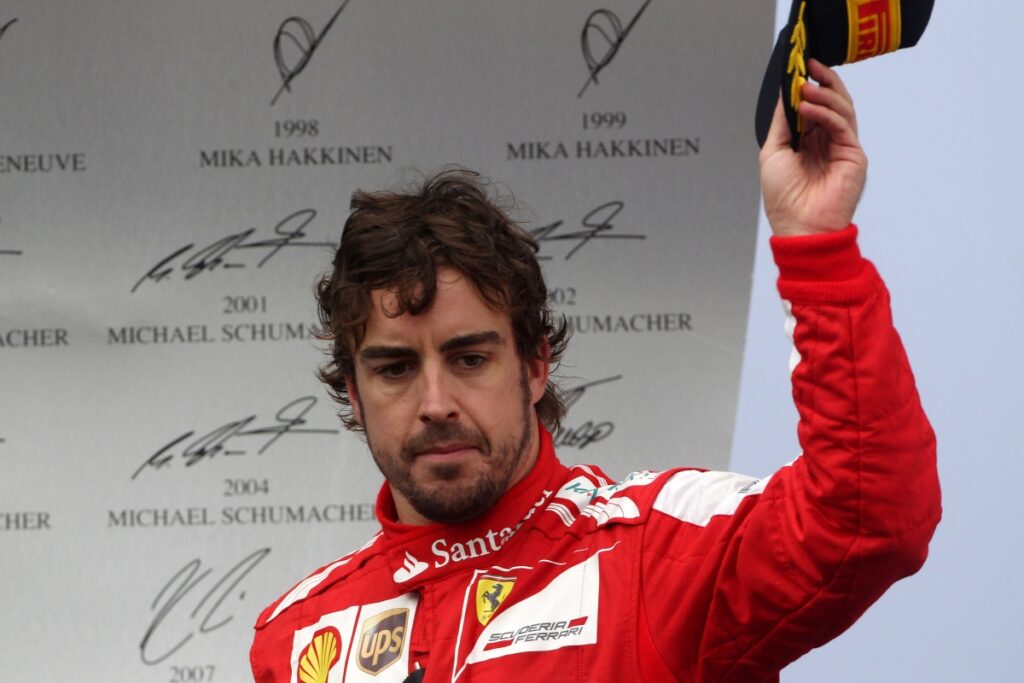
Fernando Alonso – Valencia’s masterstroke in 2012
By 2012, many thought Fernando Alonso’s Ferrari career was winding down. The car was not competitive enough to win consistently, and the championship looked out of reach. Then came the European Grand Prix at Valencia.
Starting from 11th on the grid, Alonso needed something extraordinary. Through aggressive overtakes, perfect timing during safety cars and sheer determination, he fought his way to the front in front of his home crowd. Tears streamed down his face on the podium as the Spanish fans roared.
It wasn’t a championship win, but it was the ultimate underdog performance. Alonso had risked everything in a car that shouldn’t have been on the podium, let alone first place.
Risk, reward and the allure of the unexpected
What unites these stories is not just victory, but the willingness to embrace risk when others hesitated. Motorsport has always thrived on its unpredictability (i.e. a sudden rain shower, a mechanical gamble a daring strategy). For fans, that’s part of the allure: knowing that the odds are never fully set in stone.
It is the same thrill that draws people to games of chance. The spin of online slots, like the lap of a race, is a dance between precision and unpredictability. Sometimes the favourites win. Sometimes the outsiders change history. But in both arenas, it’s the uncertainty that keeps people coming back for more.
Why these stories still matter…
In an era where teams increasingly rely on data simulations and risk-averse strategies, these underdog tales remind us why fans fell in love with motorsport in the first place. They celebrate human daring, ingenuity and the courage to chase glory against improbable odds.
From Hunt’s chaotic championship to Brawn GP’s impossible fairytale, the legends of risk-taking endure because they capture something universal: the idea that even in the most controlled environments, fortune still favours the brave.



